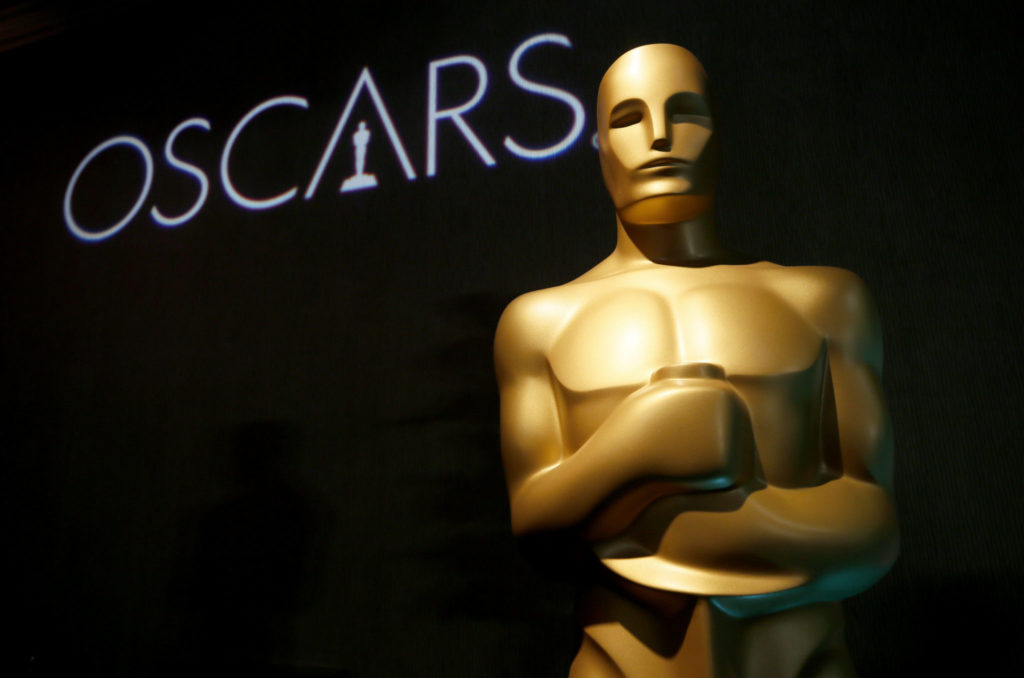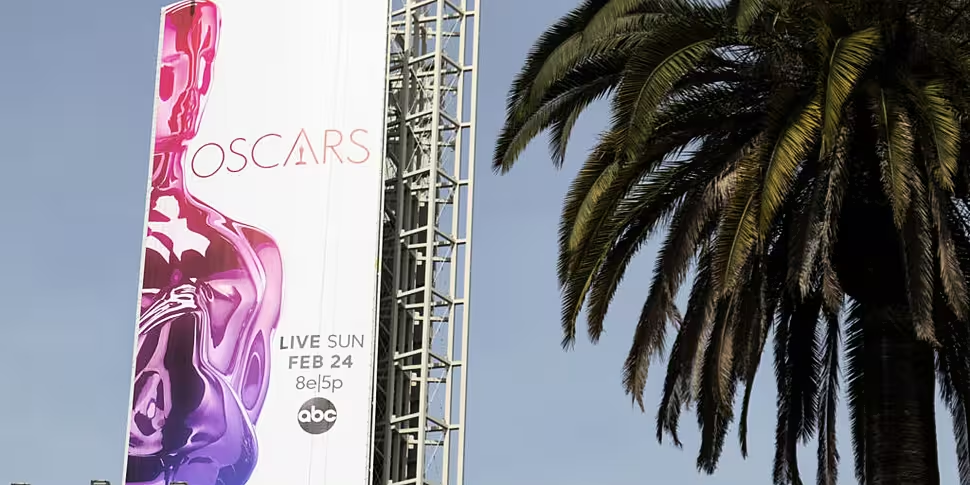“And the Academy Award for best picture…”
“La La Land!”
The winner, as we all found out a few minutes later, was not La La Land.
It was 2017, and the Oscar flub to end all Oscar flubs. Warren Beatty and Faye Dunaway should have been given an envelope that said Moonlight, but ended up with one that said La La Land instead (it was actually the envelope for Best Actress rather than Best Picture). To their credit, those on stage handled the whole thing as gracefully as they could - given the circumstances of millions of people watching the mishap play out live. However, it was one of those much-anticipated moments when the glamorous, professional veneer of the annual ceremony collapsed into chaos.
At Sunday’s 2019 Academy Awards, it’s unlikely you’ll see anything like the flub of two years ago. You can rest assured the Academy has put in plentiful contingency measures to avoid such a drama unfolding again. But while tomorrow’s ceremony will be a predictably lavish, expensive affair, the path to Oscar night 2019 has not been smooth sailing. Indeed, the world’s most iconic and prestigious awards ceremony has been having a serious identity crisis over the past few months.
One thing’s important to point out here: the TV ratings for the Oscars have been steadily falling. Tens of millions of people still tune in, but last year saw the ratings drop to 26.5 million. That’s not a shabby figure by any stretch of the imagination, but it’s a record low for the Oscars - down 19% from 2017. For the Academy and the networks that broadcast the show, that’s far from ideal. As a result, they’ve been working to build a tighter, shorter and more ‘relevant’ show.
ICYMI: Congratulations to the Best Picture nominees! #OscarNoms pic.twitter.com/I3wBhanavs
— The Academy (@TheAcademy) January 22, 2019
Popular film
In August last year, the Academy announced some significant changes - foremost among them that they’d work to keep the ceremony down to three hours, rather than the almost four hour affair in 2018. To achieve this, they decided to not show some categories live, and instead show edited versions later in the broadcast. That decision would come back to haunt them, but more on that in a bit. They also opted to move the 2020 ceremony forward to earlier in February to combat the awards season fatigue that tends to have set in by the time Oscars night rolls around. 2019 would go ahead on February 24th as originally planned.
However, there was one other key announcement.
The Academy confirmed plans to bring in a new category - for “outstanding achievement in popular film”. It’s easy to speculate why this decision was made. In recent years the Oscars have typically rewarded arthouse or independent films over popular hits. While this is likely of little concern to cinephiles - if anything, the Oscars are often criticised for only rarely choosing particularly small, offbeat, experimental or foreign language films - the films may not be as familiar to a wider audience. It’s true that exceptional big-budget efforts are routinely overlooked these days. It’s been 15 years since The Lord of the Rings: The Return of the King took home the top prize, and no blockbuster (in the traditional sense) has won since.
 FILE - In this Feb. 4, 2019 file photo, an Oscar statue appears at the 91st Academy Awards Nominees Luncheon in Beverly Hills, Calif. The 91st Academy Awards will be held on Sunday. (Photo by Danny Moloshok/Invision/AP, File)
FILE - In this Feb. 4, 2019 file photo, an Oscar statue appears at the 91st Academy Awards Nominees Luncheon in Beverly Hills, Calif. The 91st Academy Awards will be held on Sunday. (Photo by Danny Moloshok/Invision/AP, File)There were, perhaps, other reasons for the new category’s announcement. The Oscars are broadcast by ABC in the US, which is owned by Disney. While Disney increasingly dominates the box office, this doesn’t always translate to awards success. This is particularly true this year, when one film looms large: Black Panther. The Marvel superhero hit is not your typical Oscars nominee, but it’s been a cultural and commercial behemoth in the US. A ‘popular film’ award would be an easy way to celebrate the film when it might struggle in the traditional categories (ultimately, it did get a Best Picture nomination).
Whatever the motivations behind the category, the backlash was immediate. The whole concept was mercilessly mocked on social media. The arguments against its introduction were plentiful: that it would undermine the opportunities of deserving blockbusters to win the bigger awards; that it suggested winners in other categories were not ‘popular’; that it was an obvious attempt to pander to mainstream audiences.
The Academy President himself ultimately confirmed it was indeed an effort to win over a wider audience and improve ratings. However, the reaction was so overwhelmingly negative the whole thing was just dropped (albeit with the suggestion the idea could be revised in the future). All in all, it was a definite embarrassment for the Academy and a fumbled first-step in their efforts to reimagine the ceremony.
The host
Late last year, it emerged that the Oscars was struggling to find a host. According to the Hollywood Reporter, it’s the “least wanted job in Hollywood”. There’s immense pressure on any given year’s host to deliver a good show and boost ratings in the process. For many stars, it’s not worth the hassle, the money or the critical scrutiny. Then there’s the challenges for organisers in finding somebody who hits the various sweet spots - funny but not too controversial; topical but not too political; and somebody acceptable to everyone from network executives to TV viewers. It’s a tricky balancing act.
Eventually, the Oscars found its host - actor and comedian Kevin Hart.
For years I have been asked if I would ever Host the Oscars and my answer was always the same...I said that it would be the opportunity of a lifetime for me as a comedian and that it will… https://t.co/GFCpD7yH6M
— Kevin Hart (@KevinHart4real) December 5, 2018
Hart himself said it was the ‘opportunity of a lifetime’, while the Academy ‘welcomed him to the family’.
Unfortunately, things went south pretty quickly. Tweets emerged in which the comedian used homophobic slurs, prompting a social media outcry. According to Hart himself, he received a call from the Academy asking him to apologise or they’d start looking for someone else to host. After initially appearing to dismiss the controversy, Hart ultimately made the decision to step down and apologise for his past remarks.
I have made the choice to step down from hosting this year's Oscar's....this is because I do not want to be a distraction on a night that should be celebrated by so many amazing talented artists. I sincerely apologize to the LGBTQ community for my insensitive words from my past.
— Kevin Hart (@KevinHart4real) December 7, 2018
?
That wasn’t quite the end of it. There were calls for Hart to be given a second chance - most prominently from talkshow host Ellen DeGeneres.
I believe in forgiveness. I believe in second chances. And I believe in @KevinHart4real. pic.twitter.com/oJxfGXhU4P
— Ellen DeGeneres (@TheEllenShow) January 4, 2019
Ultimately, however, the Academy made a different decision: the Oscars will, for only the second time ever, be going hostless. It’s the first time there won’t be a main host for the ceremony for the first time in 30 years. While it removes the headache of trying to find a suitable host, it brings its own problems. The 1989 hostless show is bluntly described by BBC as “one of the most embarrassing moments in Oscars history”, mainly thanks to its awkward, over-long opening musical number. The Academy will be keen to avoid a similar spectacle this year.
The 'commercial break' categories
As mentioned earlier, the Academy last year decided they wouldn’t broadcast all the categories live from this year onwards. This was a relatively uncontroversial choice at the time - it certainly raised a few eyebrows when first announced, but ultimately eclipsed by the controversy over the ‘popular film’ category. Earlier this month, organisers confirmed that four categories would only be broadcast later and in edited form during the televised show (although they would be shown live online). The categories in question? Best cinematography, film editing, live action short and makeup and hairstyling.
The backlash was, once again, immediate. Many prominent filmmakers and stars expressed their displeasure over major technical categories were being treated so poorly. Among those criticising the move was Alfonso Cuaron - the filmmaker behind 2019 frontrunner Roma, and who’s also personally nominated in the best cinematography category this year.
In the history of CINEMA, masterpieces have existed without sound, without color, without a story, without actors and without music. No one single film has ever existed without CINEMAtography and without editing.
— Alfonso Cuaron (@alfonsocuaron) February 12, 2019
Russell Crowe summed up much of the anger and confusion:
So this tweet isn’t quite right .
It has been a message delivered very badly and received by cinephiles all over the world the same way.
These categories will be in the televised event, but, will not be “live”...
spurious reasoning, curious decision https://t.co/EeSCBL7B2G— Russell Crowe (@russellcrowe) February 14, 2019
The backlash apparently caught the Academy by surprise, and - not for the first time - they backtracked.
This, by the way, wasn’t even the only fumbled effort to shorten the overall show length.
Reports emerged in January that it was possible only two of the five songs nominated for best original song would be performed live during the show. They’d be the two biggest hits: Kendrick Lamar and SZA’s All the Stars from Black Panther and Lady Gaga and Bradley Cooper’s Shallow from A Star Is Born. Yet again: there was a swift backlash. It only took a day for the Academy to confirm all five songs would be performed (it later emerged that All the Stars won’t be performed live anyway for ‘logistics and timing’ reasons, but the other four performances will go ahead).
Oscars 2019
So, after all that, the Oscars are going ahead on Sunday. For most viewers, the only notable difference will be the lack of a host. But it’s been a rocky road to the biggest night in Hollywood. There’s been controversies before - like the #OscarsSoWhite outcry from a few years ago. This year, though, has been turbulent even by those standards.
After a rough year, the Academy will surely be hoping the show itself goes smoothly - rest assured they'll be keeping a very close eye on those envelopes.









